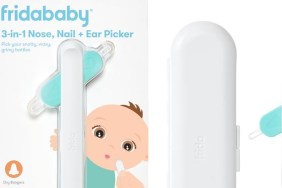Treatment:
You made it through the night! Now you’re worried enough to bring your child into your Pediatric clinician’s office. What can she do?
Reassurance. This is a mainstay of treatment in your Pediatrician’s office. The truth is, most pediatric infections (80% in some studies) are viral and just need time. But knowing it is not a more serious infection and knowing there is no serious complication associated with your child’s cold can be valuable info. I have brought my own children in to see their pediatrician many times for peace of mind.
Antibiotics. A minority of viral infections can develop into a subsequent bacterial infection:
*A viral cold that lingers and allows bacteria to gather and proliferate in the middle ear cavity, is the classic presentation of otitis media, or an ear infection. Your child would go from cranky and snotty to irritable and uncomfortable. Fever and disrupted sleep after brewing a cold for a while is the most common way I see an ear infection present to my office.
*Goupy nasal drainage for 5 days in a child who is particularly sick or nasal goup for more than 10 days in a child who is otherwise comfortable, may be your child presenting with a sinus infection. Those might be symptomatic clues for an office visit.
*A cold virus associated with cough that lingers and then is complicated by fever for more than 72 hours may be a presentation of pneumonia. All three of these bacterial infections (ear infections, sinus infections and pneumonia) usually (but not always) require antibiotic therapy. But don’t worry too much about the “classic” signs and symptoms, if you’re worried, trust your instincts and call your pediatric provider.
Respiratory medicines. Another complication of a viral illness that may need to be treated by your doctor is wheeziness. Wheezy chest colds can lead to shortness of breath, difficulty breathing, difficulty eating (or speaking in sentences, in older kids), or pneumonia in some cases. These types of chest colds are usually accompanied by a horrible spastic cough. And these types of wheezy coughs keep kids, and parents, up all night. There is no more emergent situation than a child with breathing difficulties. If you are worried about your child’s respiratory status, call your provider.
IV fluids. When hydration fails, and it can despite a parent’s best efforts, kids can get into trouble. And when a clinician deems a child significantly behind on fluids or dehydrated, sometimes some IV fluids can make a world of difference. Vomiting with a bad cold virus can lead to dehydration. And dehydration can lead to lethargy and decreased oral intake. Breaking the vicious cycle with IV hydration can perk up a sick child and get them to tolerate oral fluids again. If your child is sick and not drinking and has not voided in 6-8 hours or more and looks droopy, call your provider. It might be time for an office visit.
So next viral season, practice good hand washing hygiene. Cover your coughs and keep the Purell close by. And if a viral cold or two slip past your defenses, not to worry. Now you know what you can do to keep your child comfortable and safe.
*This post was sponsored by Triaminic.








